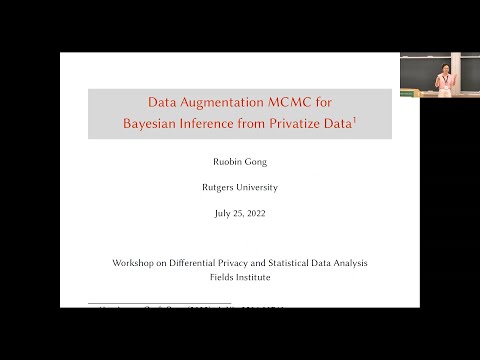Description:
Explore a 28-minute conference talk by Ruobin Gong from Rutgers University on Data Augmentation MCMC for Bayesian Inference from Privatized Data. Delve into the challenges of modern data curation, focusing on differential privacy and its adoption by the U.S. Census Bureau. Examine the mechanism, benefits, and challenges of differential privacy, and learn about statistical inference from privatized data. Discover existing solutions, including traditional Gibbs sampling and a general Metropolis-within Gibbs sampler. Analyze the requirements, run time, and efficiency of these methods, as well as the ergodicity of the proposed sampler. Apply the concepts to a naïve Bayes classifier through a simulation setup, exploring posterior mean, frequentist coverage, and empirical acceptance rates. Gain valuable insights into the intersection of statistical analysis and privacy in data science.

Data Augmentation MCMC for Bayesian Inference from Privatized Data
Add to list
#Mathematics
#Statistics & Probability
#Bayesian Statistics
#Bayesian Inference
#Information Security (InfoSec)
#Cybersecurity
#Data Privacy
#Privacy
#Differential Privacy
#Computer Science
#Machine Learning
#Naive Bayes Classifier